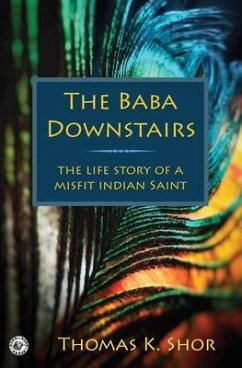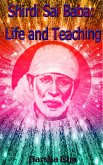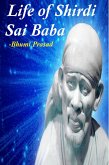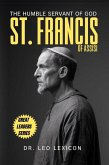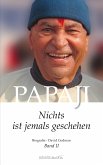This book tells the true story of an Indian man named Vikram, whose strange fate it was to be born with a large birthmark identical to the birthmark of the holy man, or baba, who died immediately after blessing Vikram's mother to have a son. So from the very beginning, Vikram was raised as the old baba's reincarnation.
At first Vikram goes along with it. He even believes it. He tries, in his childish way, to play the part. But when he probes his suspicions and discovers he possesses no special powers or insights, his course is set for rebellion. He becomes a wrestler, an engineer, embraces communism and atheism, and explores existentialism. He goes deaf, falls in love, and probes the darker side of human nature, always dogged by the stamp on his arm, his mind attuned to the deeper questions of life and the search for something foundational.
Determined to do everything a baba is not supposed to do, he enters what he calls "the Inferno of the Passions," a course that leads him to the very threshold of death. Having spent much of his life trying to "kill the baba," to rid himself of this adjective that was imposed upon him at birth, in the end he himself is transformed with an illumination, an opening to the underlying oneness such as that experienced by the Indian mystics and the Taoist philosopher Lao Tzu.
When Vikram moves in downstairs, the author's quiet writing routine in his home in a sprawling Himalayan village is disrupted. At their first meeting, this odd stranger, now quite old and near the end of his days, shoves a book of mystic philosophy that he himself wrote into the author's hands and begins his tale. The author listens, takes up his pen, and weaves the stories together into this fascinating narrative, at once entertaining and enlightening.
At first Vikram goes along with it. He even believes it. He tries, in his childish way, to play the part. But when he probes his suspicions and discovers he possesses no special powers or insights, his course is set for rebellion. He becomes a wrestler, an engineer, embraces communism and atheism, and explores existentialism. He goes deaf, falls in love, and probes the darker side of human nature, always dogged by the stamp on his arm, his mind attuned to the deeper questions of life and the search for something foundational.
Determined to do everything a baba is not supposed to do, he enters what he calls "the Inferno of the Passions," a course that leads him to the very threshold of death. Having spent much of his life trying to "kill the baba," to rid himself of this adjective that was imposed upon him at birth, in the end he himself is transformed with an illumination, an opening to the underlying oneness such as that experienced by the Indian mystics and the Taoist philosopher Lao Tzu.
When Vikram moves in downstairs, the author's quiet writing routine in his home in a sprawling Himalayan village is disrupted. At their first meeting, this odd stranger, now quite old and near the end of his days, shoves a book of mystic philosophy that he himself wrote into the author's hands and begins his tale. The author listens, takes up his pen, and weaves the stories together into this fascinating narrative, at once entertaining and enlightening.
Dieser Download kann aus rechtlichen Gründen nur mit Rechnungsadresse in A, D ausgeliefert werden.

